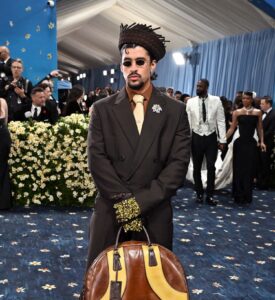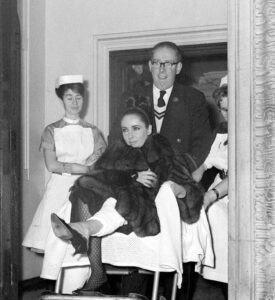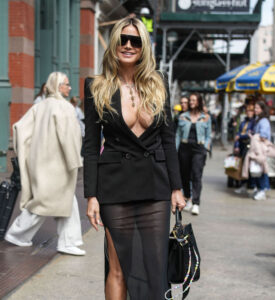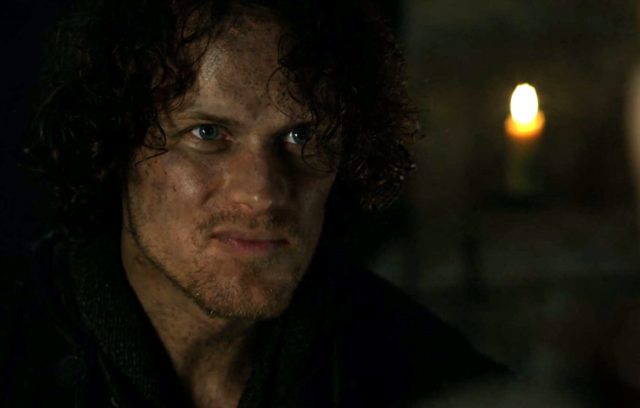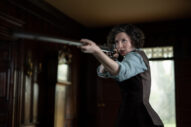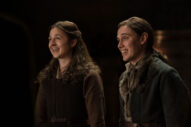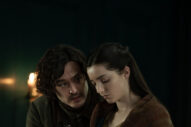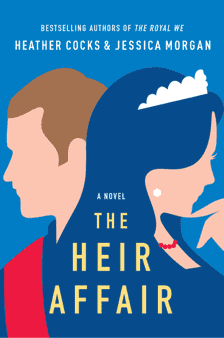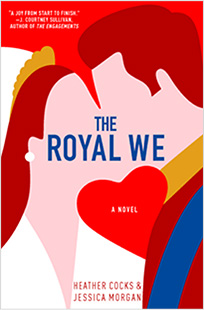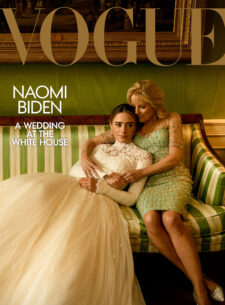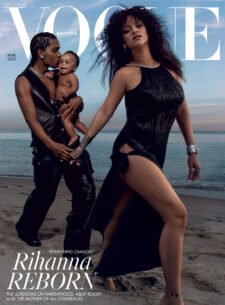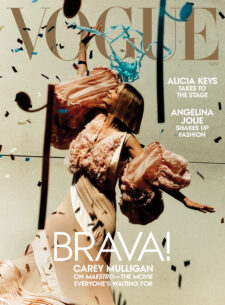As ever: Recap below, and visuals above. Please avoid future book spoilers in the comments, although it’s fine to discuss ways the series diverges with regard to events that have already happened.
Well, I’m not going to lie: I was disappointed in this episode. For a show ostensibly at least half about a very strong-minded, singular woman, this took a surprisingly male-gaze approach to her complexities, which for me was saved only by the fact that Caitriona Balfe is a strong actress. Fug Nationals who read Outlander: I’m going to need some help with this one, because I am very intrigued by the idea of comparing how the Claire and Frank stuff plays out in the book(s) versus the way it’s laid out and characterized here.Let’s begin in Scotland, though, so that we can end with… well, an end.
Scotland: Ardsmuir Prison, 1755 (nine years after Culloden)
The good news first: In prison lo these three years since his “capture,” Jamie has been reunited with The Divine Mr. M, the Bette Midler of Outlander: MURTAGH. He’s full Beaches Bette, y’all: Sassy, scrappy, indispensable, and possessed of a very righteous human as the wind beneath their wings. THEY’RE THE SAME. The bad news is that he’s also Beaches Barbara Hershey, in the sense that he’s very sick in prison — rat bites, a cough — and none of Jamie’s magical healing herbology is helping. “Not more of your damn thistles. D’ya think me a pig?” Murtagh crabs. Let’s not even get into how Jamie gets ahold of these plants when he’s only ever exposed to the prison yard. Like, you’re in a dirty rat-infested cell but you’re muddling nearby greenery into an elixir, and finding healing weeds he can chew? Regardless, the point is that they’re not working. But don’t fret. Murtagh is not going to die. NOT YET. He might go to America, but that’s a whole other problem we’ll get to in a minute.
The new officer in charge of the prison, John William Grey, has a familiar name: He’s the kid Jamie didn’t kill, whose brother Lord Melton repaid the debt by releasing Jamie to Lallybroch. But the two of them do not admit to connecting those dots yet. Instead, we get exposition: Grey is told that Jamie is the unofficial spokesman for the prisoners, and that it’s best to develop a cordial and mutually beneficial relationship with him, because a) he’s something of a legend, and b) the officers are afraid of him and remember him as The Devil from Prestonpans, which is why he’s kept shackled when they’re outside. Dunbonnets don’t play, y’all. Also, he’s now got ANOTHER nickname: MacDubh. I had to turn to the Internet to learn that this means “son of Black Brian,” referring to the color of Brian Fraser’s hair (common at the time to nickname people based on their DNA-given lids). Even the Redcoats are like, “SHRUG, no idea what the eff that means.” It does not have have the same ring as THE DUNBONNET. I am MacDubhious.
At first it feels like young Gray will eschew this weak mercy, just to make a name for himself, and he insists that he would never dine with prisoner scum. Instead he goes all in, and I think it’s because he wants to test whether Jamie recognizes him. Jamie, whom we’ve heard say thought Grey looked familiar, does not appear to recall their connection. Grey is in the “not all Redcoats are big meanies” vein: When he finds out rats overrun the cells, he offers to put a cat in each one, until Jamie cracks that the cat will simply be unwelcome competitors with the prisoners for snacks. He’s trying to scare Grey, who is young and trembling, even if he tries not to show it. But in time, he listens to Jamie, he sits down to nice meals with Jamie — meals Jamie recounts in lavish, loving detail to the starving prisoners, who relish every phantom bite — and he makes deals with Jamie when he needs a man to translate the French/Gaelic rantings of a local coot which appear to pertain to some legendary French gold that the Queen would be most interested in recovering (this being the gold King Louis allegedly proffered to the Bonny Prince). In return Jamie asks for blankets and medicine for all prisoners, but when warned of a shortfall, immediately caves and says he’ll do it if Murtagh is at least helped. Which is really sweet, but I’m sort of surprised the other prisoners aren’t getting irritated with him. Like, you come in here all WHAT HO IT’S THE NOTORIOUS DUNBONNET HERE FOR ALL YOUR BONNETING NEEDS and then suddenly you’re MacDumbh and all you do is get your best friend some Robitussin and rub it in that you’re eating red-wine sauces on your pheasant.
When your stomach’s rumbling empty
and there’s infection in your wound,
Who’ll fight for salvation for ye?
Not The Collapsible McDubh.
Anyway, the old man raves wildly about the gold being cursed and all the dead Mackenzies, and the man who married “a silkie from the sea,” and the White Witch. Jamie’s ears prick up, because the only White Witch he knows of is Claire. “She seeks a brave man, a Mackenzie. Aye, she will come for yeeeeeeeeeeeeee,” Old Man Death Rattle rasps. Next, there is a really sweet scene — as Jamie uses a purloined mortar and pestle from GOD KNOWS WHERE to make Murtagh some potion — where Jamie recounts this to Murtagh, and he asks with a light in his eye whether it could even possibly be true. Murtagh also confesses he often thinks of Claire and the baby, and wonders what became of her when she went through the stones, and how he longs to know and laments that he never will. Jamie doesn’t want to talk about her or the baby. “Can I at least pray them sound?” Murtagh asks. You do whatever you like, Murtagh. Remember that time he offered to marry Terrible Mary — pregnant with Black Jack’s dead brother’s baby — just so she wouldn’t have to be beholden to Jack? He is the greatest and should have his own show.
What ensues from The White Witch Nonsense is the kind of escape plan that is going to annoy the shit out of Jamie’s cohorts. He convinces Grey that the prisoners should be allowed to leave and set traps for meat in the fields, and also pick plants for healing, and such — which might alleviate supply problems throughout the prison. Grey agrees. And when the men are brought outside to check their haul, Jamie leaps into a nearby hole and is covered by artfully placed brush. Despite him being the most visible of the prisoners and the supposed leader, none of the Brits notice he’s gone until they are long gone, and so is he. So Jamie’s on the run again, right? He’s free to roam? WRONG: Three days later he’s been spotted off on some island, and when Grey pauses in his search to take a whizz on an ancient building, Jamie corners him and steals his sword. It’s here that Jamie confesses he knows who Grey is; Grey wondered if he’d put the pieces together. Jamie wonders when Grey will keep his promise — that being, his oath to kill Jamie if they ever came across each other once the debt of honor was settled. He hands Grey his sword and kneels. But Grey’s basic decency kicks in: “I will not murder an unarmed prisoner.”
The two men wander back peaceably through the moors, and Jamie confesses that Old Man Death Rattle’s words had meaning to him, and that the White Witch probably referred to his wife who is “gone.” (There’s a link to the theme song for you.) He says he only escaped and came here (where?) to sniff around for the truth about whether Claire might have somehow washed up again on their shores, or… something? Y’all, I watched this without a device in my hand or on my lap, and I was still a bit confused as to where he’d gone. The point is, Jamie had false hope of seeing Claire again, and when that crumbled around him, he was content to surrender and be killed. All the men who helped him escape have GOT to be confused about the wisdom of this one. Are we sure it’s not puncturing his legend?
When freedom kissed his haunches
what dd our fearless leader do?
He came back half a second hence
did The Boomerang McDubh.
There was also no gold, but he did find a sapphire, or something, and hands it over as some kind of proof of honor. Trust forged anew, Jamie and Grey play chess and trade intimate stories about love and loss, and emptyness. This show makes prison look pretty fun. In Grey’s case, he gingerly and rather bravely in my eyes confesses that he was “inspired by” a fellow soldier who lay dying on Culloden, but Melton dragged him away before he could say a proper farewell. Jamie understands, on all levels, and says, “Perhaps the greatest burden lies in caring for those we cannot help, not in having no one for whom to care.” Grey actually manages to draw Jamie into a conversation about Claire; he even says her name, smiles, and nearly laughs at the memory of when they deceived Grey into thinking Claire was in mortal danger so that he’d betray his army. Far from being annoyed, Grey laughs along with this memory of his earnest and noble young self: “If you found a 16-year old boy shitting himself with fear a worthy opponent, it’s little wonder the Highland Army was defeated.” Jamie replies that any man who doesn’t shit himself in those circumstances, and trades his life for that of a lady, is indeed worthy. “You thought to save her life at risk of your own. I’ve thought of that never again since… well, since I lost her,” Jamie admits. And then, in a classic “Oh no, child, don’t do this, WHAT ARE YOU DOING, STOP” move, this sweet kind-faced lonely British soldier, who has just been complimented by the hottest tender animal he’s ever seen, places his hand on Jamie’s with a very hopeful expression and rubs it with his thumb. Jamie tenses up immediately, because he’s been down this road with Black Jack, and hisses at Grey to remove his hand or else DIE BY IT.
Sure, you want his filet mignon.
For your sexy fireside stew.
No judgment, but you’ll find no home
In The Impenetrable MacDubh.
Next we see them, the prison is being closed and all the inmates are — at least theoretically — being transported to the colonies to serve out their sentences. But Jamie is dragged away separately by Grey, walking while tied to the back of the horse. All he and a now-healed Murtagh get to do is glance at each other in passing. MURTAGH. DON’T GO. He has to escape, right? Otherwise, why waste The Divine Mr. M? I kept thinking, “Oh but maybe he’ll run into Claire in America,” and then remembering that Claire is in the 1940s. Oh, Murtagh. Some say love, it is a hunger; an endless aching need. I say love, it is a flower, and you its only seed. GROW, MURTAGH. GROW.
What’s becoming of Jamie? Grey tried to get approval to free him, because he’s still technically a traitor: “I couldn’t give you freedom, Fraser. This is the next best I could manage.” Jamie will go into a life of indentured servitude at an estate in Scotland, albeit one run by someone unsympathetic to the Jacobite cause, so Grey suggests that Jamie use an alias and conceal his accent. Jamie is astonished that he’s getting this relative consideration, especially after their rather grumpy, grunty parting. He acts as if he expects to have his bones jumped as payment for this favor, and I understand why he’d be wary; he even says, “Why’d you do that for me? I did’na let you have your way.” Grey, clearly embarrassed, chokes out that he regrets his actions and bears no ill-will for Jamie’s reaction– and, without using as many words, conveys that Jamie has become a confidante and friend, and that they’ve now given each other their lives. It is, basically, the exact opposite of how Jack Randall would have handled any of this. Jamie turns his head and gazes down upon this hideous building in grotesque emerald countryside, and sees for the first time in ages… life.
So Red Jamie’s gone for good now
And The Dunbonnet’s retired too.
What alias will come forth, the fourth,
For the man formerly MacDubh?
BOSTON, 1956-66
We pick up with Claire fully ensconced in med school, but also enjoying a full English breakfast cooked by Frank. The nostalgia and pleasantries are such that she cheerfully notes that she doesn’t have class that night, and suggests a few movies to Frank that they could go and see. He must awkwardly inform her that he’s already seen them. You know. Seen them, seen them. In a sexy way. Claire’s face falls. “We agreed we were free to…” he points out. “I’m being discreet.” She recovers and thanks him for it, and then Brianna comes down to breakfast to spare them any further interaction. So it would seem that Brianna’s birth was not their new beginning.
Cut to: 1958. If you were hoping for more stories about Claire enduring medical school, and forging a bond with Joe Abernathy while they kicked the arrogant asses of all the racist, sexist snobs at med school… well, those hopes shall be dashed. Instead, we get a graduation night cocktail party at Chez Randall to celebrate Claire and Joe. Everyone is heading off to dinner at 7 p.m. except for Frank, who has to work — much to Brianna’s dismay — and who casually asks Claire if the reservation wasn’t supposed to be at six? You know where this is going: The doorbell rings, and Claire opens it to the hopeful face of a woman. Both their facial expressions almost immediately register an awareness of what’s just happened, made worse when Brianna and Frank poke their heads into the hallway. But this gets me: Instead of the woman saying, “Oh, I’ll wait outside,” or Frank or Claire or even the woman herself suggesting coming back in an hour, Claire instead goes inside and shouts that everyone — these people who’ve JUST heard her loudly discussing Frank’s conflicting work schedule — must come make some early mischief with them at the restaurant, while the woman comes inside and stands next to Frank. Indeed, they watch as the entire party parades out the door past them, looking deeply suspicious. Honestly, I could have italicized or all-caps’d that entire sentence. If Frank has been so subtle about his affairs up to now, why is this suddenly being handled with all the finesse of a sheep trying to shear itself?
It’s possible he wanted to get caught, wanted to force the lie into the open, but I don’t think that entirely makes sense. Because his whole argument is that he’s hanging onto their arrangement for dear life because he’s afraid of losing Brianna, so why would he turn around and then blow up his life? Backing up: Frank comes home sauced from his bangfest, and he and Claire fight about the indiscretion over their nightcaps. “You invited her here. Where our daughter lives,” she says. “You REALLY dislike me that much? It’s my graduation for God’s sake, and you humiliated me in front of my new colleagues.” (Again, could Claire not have pretended it was a wrong address and then hissed, “WAIT OUTSIDE”? This is a woman who thought on her feet in Scotland for years.) Frank’s retort is to point out that turnabout is fair play: She has been unable to act the part of a happy spouse and all his Harvard colleagues have been onto them for years. “And let’s not forget. It was your idea to lead separate lives.”
In the first of many moments that irritate me, Claire proceeds to slut-shame his girlfriend, calling her “a blonde harlot,” as if she is the innocent and sole wronged party here. Frank defends her academic credentials, so Claire switches to making it about herself: “You did this deliberately. You wanted to hurt me.” And then: “Have you fucked her in our bedroom?” Girl, I’m not saying this can’t sting, but THAT IS RICH OF YOU. “I think our bed is far too crowded already. Wouldn’t you agree?” Frank zings, albeit blurrily. Claire at least concedes that point, somewhat, and tells him to give up the ghost and get a divorce. Frank refuses. Apparently when Thoroughly Neighborly Millie and her husband split, Frank recounts sadly, the husband was cut off from his children. Because an big meanie mean judge decided FATHERS just aren’t IMPORTANT, and O WOE BETIDE MAN, FOR HIS SPECIES CANNOT CATCH A BREAK. While I am sure the intricacies of divorce did (and still do) occasionally unfairly favor the mother in most instances, this is all presented as if a) Thoroughly Neighborly Millie has no side to this story, and b) Claire is cold and dead inside. She insists she’d never deny Frank access to Brianna, but he’s been burned before and doesn’t want to risk it. So instead, they sit there and nurse their drinks, and wallow in mutual enmity. She doesn’t want him and may hate herself for it, and he still probably wants her but hates himself for it. So much resentment.
Frank comes off as nothing so much as a man reduced to a doddering, philandering drunk in an array of Harry Caray glasses. But his sadsack nobility now reads more like HEROISM IN THE FACE OF SELFISH EVIL, because Claire comes off horribly. Caitriona Balfe pours as much conflict and heartbreak into her scenes as she can, but I think that’s intelligent and empathetic acting rather than an observance of what’s on the page. Claire has been characterized thus far as blaming Frank somewhat cruelly for the fact that she lost the life and love she wanted. When in fact, as Frank points out, Claire is the one who’s been driving this bus. She came back through the stones. Frank offered her and the baby a life in America. She took it. Frank offered her a home with him. She took it. Frank offered her his love and his patience and support, and she took it, and then returned it to sender. And yet, when she offers him an open marriage, she’s furious to learn he accepted. It is possible that she’s aching because she realizes this means there is no going back with Jamie or with Frank, and that her personal life is as broken as ever, and maybe she’s even aware of her own part on it. Mostly, though, it’s a cold fish scenario where the scenes feel like we’re siding with Frank. I even fell for it. Poor Frank! He was so reasonable, and she shoved him away, and then got angry when he finally stayed there. I want to side with Claire more. The show evidently wants to twist me in his direction.
More thoughts coming, but let me get through the plot first. Jump to: 1966. Claire is a surgeon, coming and going, and Brianna has just turned eighteen. Frank shuffles into the living room, his speech still a little slurry as if he’s in a permanent half-medicated state, and tells him he’s been offered a job at Cambridge. Because Claire is hella irritating me right now, of COURSE her response is, “I can’t possibly move to ENGLAND right now,” as if Frank is a huge asshole for pursuing a professional opportunity. Aha, but Frank doesn’t care if she can come: He wants to get a divorce and marry Sandy as soon as Claire sets him free. Oh, and he wants to take Brianna. And he doesn’t need Claire’s permission, because she’s of-age now. RECORD SCRATCH. “All this time, you’ve just been waiting for the clock to run out,” she shouts. Frank says he isn’t out to hurt her; he just wants to make a life for himself with a wife who can stand the sight of him, and to know Brianna will be part of it. “You couldn’t look at Brianna without seeing him, could you?” he asks. “Without that constant reminder? Might you have forgotten him with time?” Clare shakes her head. “That amount of time doesn’t exist,” she whispers. Poor Frank. Poor Claire, too, but honestly, with the way they’ve written her, I found myself cheering Frank’s slyness: He waited until Brianna is 18 and cannot be controlled by her mother, and is banking on Brianna wanting to stay close to him. What I don’t like about it is, Outlander has tried to establish Claire as a somewhat groundbreaking woman, societally speaking, and yet now is smacking her in the face with it by having Frank intimate that her career made her an absentee mother. Because Claire had a career, he’s so sure Brianna would choose him.
But she won’t get to, because then Frank dies.
Yep. Just like that. Claire is called to the hospital, and after she’s performed a surgery that left nary a mark on her scrubs, Joe Abernathy comes in and delivers with steely sympathy the news that Frank has been in a car accident. I would assume he was driving while blitzed. Claire goes in to say a final goodbye. “If you’re still close enough to hear me, I did love you. Very much,” she sniffles. “You were my first love.” She gives him a peck on the mouth before composing herself and going back to business. And that’s that.
Okay: Whaaaat? Do the books return to this relationship? Or do they linger more on it before he dies? I can’t sort out why there was such a need to race through it. To begin with, we’ve established a great love triangle here. As much as I appreciate running with the imperfections and complexities of both Claire and Frank, which drove them to this emotional impasse, I think this does a disservice to the sheer length of their life together in what clearly became as much a prison as Jamie’s actual jail. The show plays it like she never gave Frank a fair shake; just used him as a surrogate penis until he called her on it. And that’s uncool, because her situation is just as heartbreaking. I’m sure we’ll find out soon how much Brianna knew, and what she felt, but that character would’ve benefited from some fleshing-out in her younger days. It also gives no heat to Claire’s side of the story. What was this like for her? How hard did she keep trying to leave Jamie behind, or lock him away in her mind? She was fairly sexually liberated, so did she ever seek another stunt wang from someone who wouldn’t have noticed her eyes open or shut? And, arguably most important of all, how long did it take her to shake Frank’s resemblance to their torturer, Jack Randall? I am actually surprised they didn’t have her picture a dead Black Jack on that morgue, dissolving back and forth from Frank’s actual body. The sight of that face, devoid of life, would’ve had two meanings for Claire, and the show ignored one of them. The show ignored a great deal of her inner life, in fact, and to her detriment. She comes across like a woman who was a jerk to a perfectly nice man — and maybe she was, but Claire is not a jerk for jerkiness’s sake, and so the journey of her inner turmoil would have been one I’d have gone on at least a little bit longer.
Because that also gives her romantic agony some nice shades. And it gives the eventual reunion more ache. Much like how we knew Season Two was barreling toward Culloden, we know this one will be about reuniting Jamie and Claire — and soon, I think, because the show won’t want to keep the sex and chemistry off the table much longer (which could even involve an actual table). But where they diverge is: Season Two told you at the top that everything you were about to see would come to nothing, whereas this one simply makes you assume it’ll be an exquisite an indeterminate wait. We know we’re going to love the reunion, but the hows and wheres and whens will be so much more satisfying if we understand the struggles they endured to get here. Jamie lived in a frigging cave and had Sad Sex with Kind Mary, and Lord knows what’s going to befall him in his new position.
